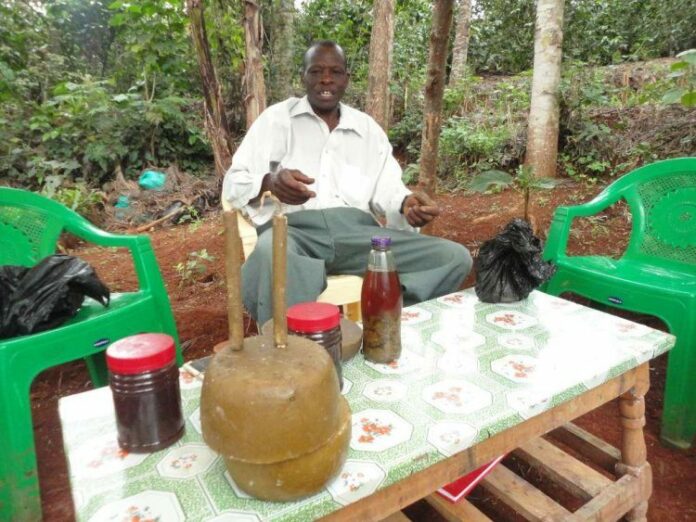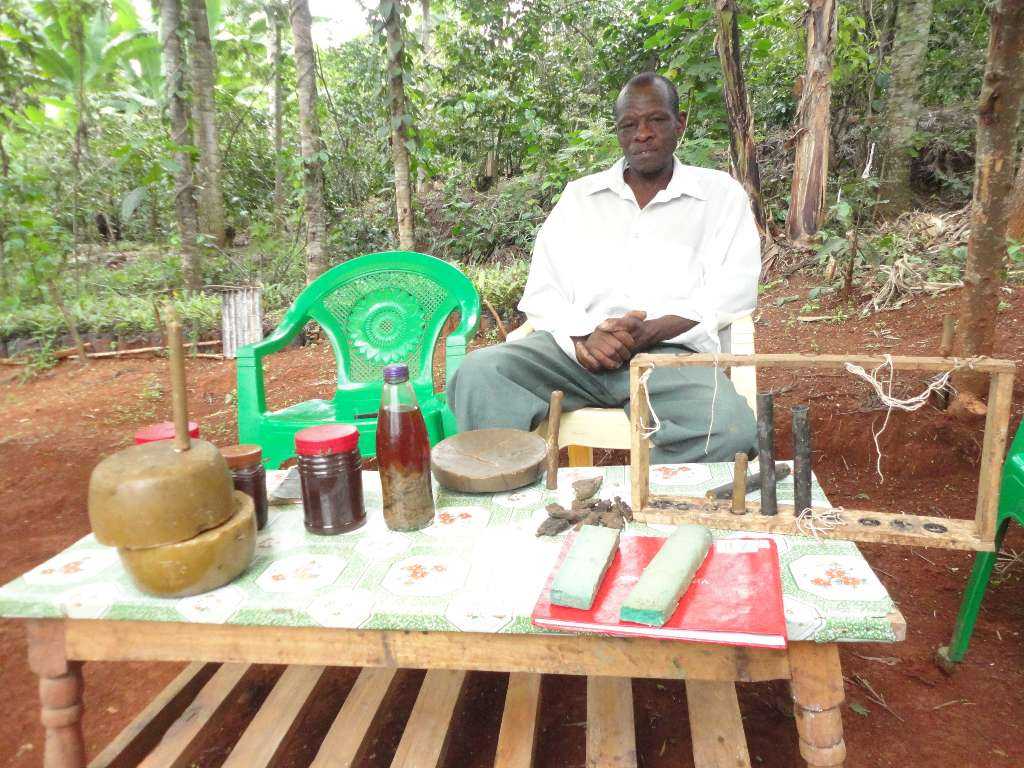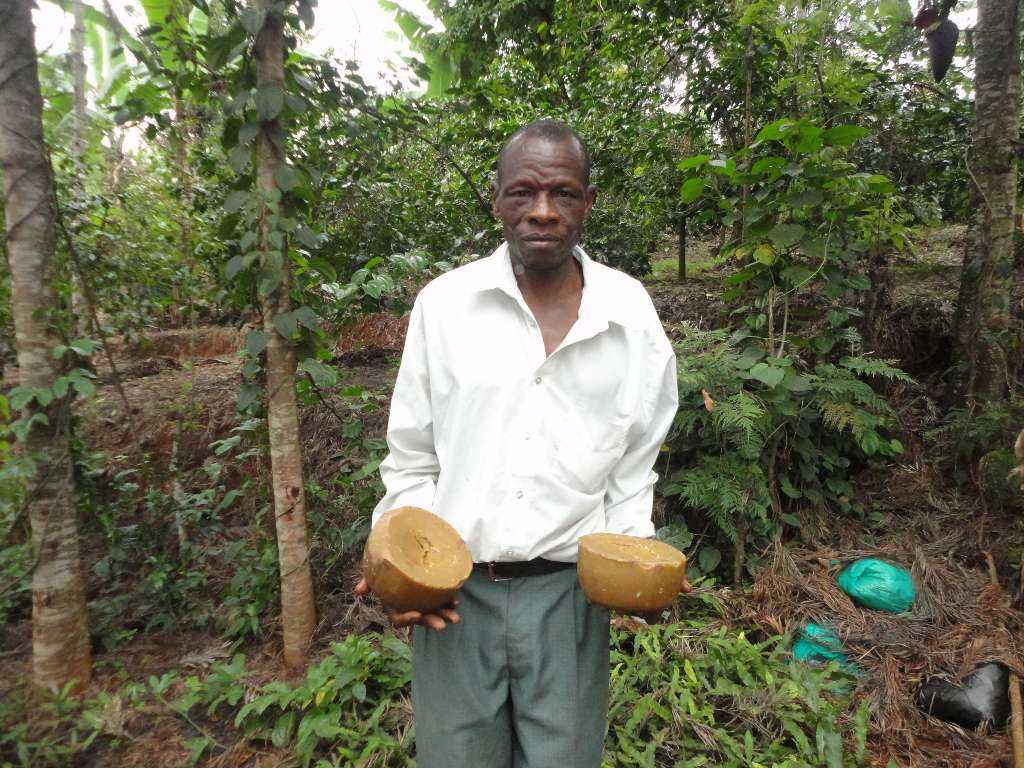Nelson Njeru used to earn a meagre income from his half acre tea farm. He later decided to venture into bee keeping which has been very successful.
He says bee keeping is lucrative yet it is overlooked by many farmers in Embu who are preoccupied with tea and dairy farming.
“Bee keeping is my main source of income. Through value addition, I now make various products such as candles, bar soaps and milking salve from honeycombs. I make adequate income from bee keeping to feed my family and educate my children,” Njeru says.
He ventured into bee keeping in 1995 after receiving poor tea bonus payments, and from two traditional beehives, Njeru now has 36 beehives in his farm situated in Manyatta sub-county.
At the beginning, he did not benefit from the venture because he lacked skills on appropriate bee keeping methods.
“Honey badgers from the nearby bushes habitually raided the hives and ate all the honey before I could harvest. I almost gave up,” he recalls.
To overcome these challenges, Njeru consulted an agricultural officer who advised him to consider Langstroth hives that ensure maximum honey production. “I was told not to interfere with the queen during honey harvesting.”
He later went for a three-week training on profitable beekeeping practices in Lenana. “The training on making hives, attracting bees, harvesting and refining honey and value addition was a big plus in my beekeeping project,” he says.
Armed with adequate skills, he constructed his first six Langstroth hives in late 1999 and placed them on poles that are three feet high to make harvesting easier.
To attract bees, he smoked them with bee wax and planted sweet scented flowers in his apiary.
Within the first three months, bees had already colonised the hives and he intends to have at least 60 hives by the end of this year.
Njeru says attracting bees to hives is an art that requires adequate training and knowledge on bees behaviour.
He attributes the skills to a training organised by the International Centre of Insect Physiology and Ecology.
His apiary is located close to a banana plantation and other flowering plants to ensure that bees have access to pollen and nectar.
“Water and flowers are the key resources required to attract and keep bees in a natural setting. Surrounding the banana plantation are grevillea and eucalyptus trees to ensure further access to flowers throughout the year, while using scented flowers around the hives attracts bees,” he advises.
He prefers Langstroth to Kenya Top Bar hives because they are easier to harvest honey by separating the brood box and super.
Njeru says the brood box holds the brood frames that houses the colony where the queen lays eggs, while bees keep honey in the super.
“Movable frames in the Langstroth hives are designed and built in such a way that they maintain the natural bee space [that is bees build honey combs with a specific distance between them], with a convenient atmosphere for them to make honey,” he adds.
Another advantage is that it allows a farmer to either extend or reduce the size of the hive based on the size of the colony. “Langstroth hives have enabled me to harvest honey without disturbing or damaging brood areas as with other hives,” he says.
A single beehive produces between 15 and 20 kilogrammes of honey each time he harvests. Usually, Njeru harvests honey after every three months. One kilo of honey costs Sh500 and hence a single beehive earns him between Sh30,000 and Sh40,000 annually.
He sells the honey both locally and to customers in Nairobi.
Njeru says the demand for honey is so high that he is unable to satisfy it.
To increase his earnings, Njeru adds value by making products such as candles and laundry soap using wax extracted from honey combs that people throw away.
He makes normal candles and others that serve as mosquito repellents by boiling wax together with crashed powder from the Jatropha seeds.
The wax and Jatropha powder are mixed and boiled for 30 minutes before being poured into a moulder [small plastic pipes with normal candle wick inserted before pouring the liquid mix] and allowed to cool naturally.
Njeru sells normal candles at Sh20 each and a mosquito repellent candle at Sh50.
He also uses wax, cooking oil, caustic soda, colouring material and sodium silicate to make laundry soap.
He adds that the cost of keeping bees is minimal compared to tea and dairy farming. He hopes to pass his knowledge and skills to other farmers seeking to venture into bee keeping.










